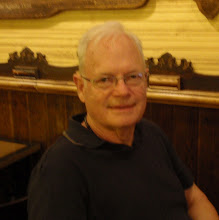--> Today, the following presentation was rejected for inclusion :
Proposal for the AAUP Shared Governance Conference and Workshop, November 12-14, 2010
“Academic Freedom for Adjuncts: Case Study and Implications for AAUP”
Paul Zarembka
Professor of Economics, SUNY at Buffalo, and
Grievance Officer for Academics, UUP SUNY at Buffalo Center Chapter
Email: zarembka@buffalo.edu
Phone: 716-645-8686
Shared governance is now located at the nexus of campus and national forces that intersect and intertwine. Increasingly, public education finds it most powerful voice in the context of collective bargaining where the individual employee and the chapter must navigate the complex waters of union structures and the manner in which AAUP intersects with those structures.
AAUP is now involved in major organizing efforts with AFT to bring the collective bargaining version of shared governance to more public universities. But just what does that mean for the individual faculty member who seeks the assistance of AAUP in an academic-freedom violation case.
This presentation will discuss a case study of one adjunct in the nation's largest higher education union, with national and international implications.
The case of Professor Artur Grabowski (a tenured professor at Jagiellonian University in Krakow, Poland, former Fulbright professor and Kosciusko Foundation professor to American universities) is of great interest to the AAUP for several reasons, not the least of which is relationship to the so-called academic freedom “exception” raised in the Supreme Court’s "Garcetti" decision (see http://www.aaup.org/AAUP/comm/rep/A/postgarcettireport.htm).
Everything fundamental to AAUP's traditions and reputation has, to date, been thrown out the window in Professor Grabowski's dismissal when he defended his right to academic freedom:
- the union President refused to appeal the case beyond the campus administration review level (Step 1) because he was an adjunct
- SUNY System refused to grant a time extension for such an appeal to Step 2 (of 4) simply because Professor Grabowski was an adjunct
- the Director of Academic Freedom at AAUP National was disinclined to investigate the matter because Grabowski was an adjunct and he was a faculty member in a union (but AAUP-related)
- the General Secretary has delayed in acknowledging receipt of correspondence appealing this matter, dated July 30, 2010, for unknown reasons, and
- the NYS Conference Committee A Chair refuses to assist the professor, claiming, counter-factually, that the AAUP National has made a formal decision -- when only the Secretary General may so proclaim and he has been silent to date.
Major AAUP and First Amendment principles are involved:
- the Garcetti academic freedom "exception" for teaching and research, put to the test in the case of adjunct faculty
- the SUNY/UUP contractual agreement and the Policies of the SUNY Board of Trustees, the latter incorporated in NYS Education Law, which guarantee academic freedom in the classroom without regard to appointment status
- the AAUP's revised policies that guarantee all adjuncts access to faculty review of allegations of academic freedom violations (a campus administrator's review is not a faculty review)
- the SUNY censure by AAUP that contains, since the Dube case, the admonition to institute faculty review procedures in academic freedom matters
- AAUP's stated commitment to adjunct and contingent academics
- "international" academic freedom, whereby professors from other nations should not encounter discrimination on the basis of the teaching methods used perhaps in their home institutions
- coordination of National and Conference support for academic freedom when a professor contacts any branch of AAUP.
AAUP policy has been that each and every faculty member, regardless of membership in AAUP -- or in a union related to AAUP – has the opportunity for AAUP consideration of her or his case and has support from the principles of the Association. Such a policy surely applies equally to an international faculty member with a temporary appointment at an American university -- and if not, what does this mean for all contingent faculty in the United States?
My presentation will carefully elaborate the conflicting interests and policies at stake in the confrontations between AAUP policies and principles and the insistence of university management on absolute and unfettered control over contingent faculty -- with little resistance from labor organizations which claim to protect academic freedom.
Respectfully submitted, September 1, 2010
Subscribe to:
Post Comments (Atom)


Sorry to hear about your proposal rejection. It looks as if you made the common mistake of assuming that AAUP decision-makers, like many in faculty associations and unions purporting to represent non-tenure-stream faculty along with the tenure-stream for the last thirty years, would be drawn to intelligent, well-reasoned arguments for academic freedom, fair play, and justice, since an injustice to one is an injustice to all. But that's just a catchy phrase, and nothing could be further from the truth of American faculty today. You'd do better to leave the word "adjunct" out of your proposal entirely; in fact, put adjuncts themselves out of your mind. Now is just not the time. Then wasn't the time either, of course, and it won't BE the time for the foreseeable future, but there are plenty of other issues on which to lavish your considerable compassion and acumen. On any given SUNY campus, there's plenty to get worked up over: The Budget, of course, but also parking, picnics (burgers or chicken?), holiday dinners (roast beef or chicken?), and of course the always hot-button Who's Holding Office Instead of My Friends, Let's Gather More Information, and just generally Whatever Threatens Mine. Academic freedom is as academic freedom does, and whether it needs more protection or not, it finds its own concerns.
ReplyDelete